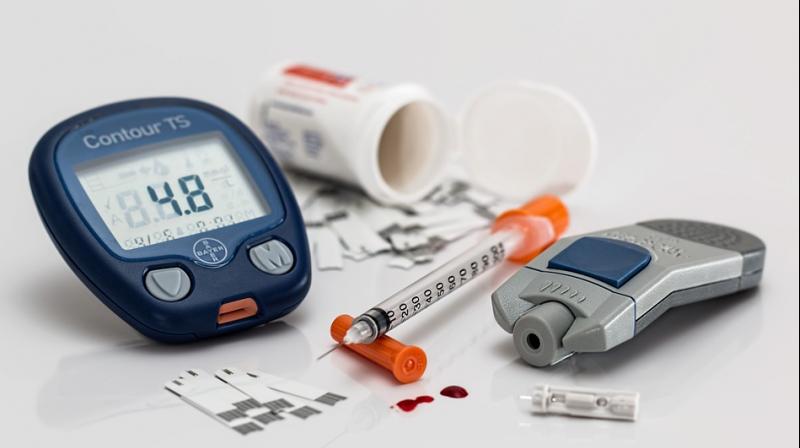Sickle cell trait skews common diabetes test

A genetic trait that affects red blood cells and is fairly common among African Americans and Hispanic Americans can cause an important blood sugar test to miss signs of diabetes, researchers say.
The test known as hemoglobin A1c (HbA1c) estimates long-term blood sugar levels by measuring the amount of glucose sticking to red blood cells, but blood cells from people with sickle cell trait don't live as long, so they have less time to collect glucose.
When lead author Mary Elizabeth Lacy from Brown University School of Public Health in Providence, Rhode Island, and her colleagues used standard HbA1c cutoffs to screen for diabetes, “we identified 40 percent fewer cases of prediabetes and 48 percent fewer cases of diabetes in individuals with sickle cell trait than in those without sickle cell trait,” she told Reuters Health by email.
Sickle cell disease is a serious condition that occurs when a person has two copies of a defective gene responsible for making part of the hemoglobin molecule in red blood cells. Hemoglobin allows the cells to carry oxygen to the tissues that need it, but in people with two copies of the faulty gene, blood cells can turn sickle-shaped, causing painful crises and even death.
People with only one copy of the defective gene are said to have sickle cell trait, and most have no symptoms of sickle cell disease. The gene is most common among people with ancestry in sub-Saharan Africa, Central America and South America, Saudi Arabia, India, Turkey, Greece and Italy.The U.S. Centers for Disease Control and Prevention estimates that 1 in 13 African American babies are born with sickle cell trait.
In their study of 4,620 African Americans, including 367 with sickle cell trait, Lacy’s team found that HbA1c levels were 0.3 percent lower in those with the trait than in those without it, even though they had similar blood sugar levels.
While 0.3 percent may seem small, Lacy said, “a difference of 0.3 percentage points in HbA1c could be the difference between being identified as high-risk (and being targeted for more frequent monitoring as well as additional diabetes prevention efforts) or not, or receiving a diagnosis of diabetes or not.”
Among individuals with no history of diabetes and not taking diabetes medications, testing blood sugar directly detected pre-diabetic elevated blood sugar levels or full-fledged diabetes in equal numbers of people, regardless of whether they had sickle cell trait, the researchers report in JAMA.
But if HbA1c was used instead of blood sugar testing, pre-diabetic elevated blood sugar would be diagnosed in about 29 percent of those with sickle cell trait compared to 49 percent of those without the trait. Similarly, the HbA1c test would identify diabetes in about 4 percent of those with sickle cell trait and about 7 percent of those without the trait.
The results of HbA1c testing need to be interpreted with caution in patients with sickle cell trait, Lacy concludes. “These findings were based on one method of HbA1c measurement. While it is approved for use in those with sickle cell trait, we are unable to say whether our findings are due to assay interference or a biological phenomenon in those with sickle cell trait.”
Doctors should consider using a glucose tolerance test if they suspect diabetes in people with SCT whose HbA1c is close to the cutoff level, said Dr. Anthony J. Bleyer from Wake Forest School of Medicine in Winston-Salem, North Carolina, who coauthored a related editorial.
“I think there needs to be more research in this area. The HbA1c is a really important test that we use all the time. We need to make sure it is accurate for individuals of all races and ethnicities,” Bleyer said by email.
“Approximately 10 percent of African American patients have sickle cell trait. It is prudent to test African American patients for hemoglobinopathy (sickle cell trait) before relying on HbA1c for diagnosis diabetes/prediabetes and before using HbA1c to monitor blood sugar control,” Dr. Kristina Behan from the University of West Florida in Pensacola, who was not involved in the study, said by email.

